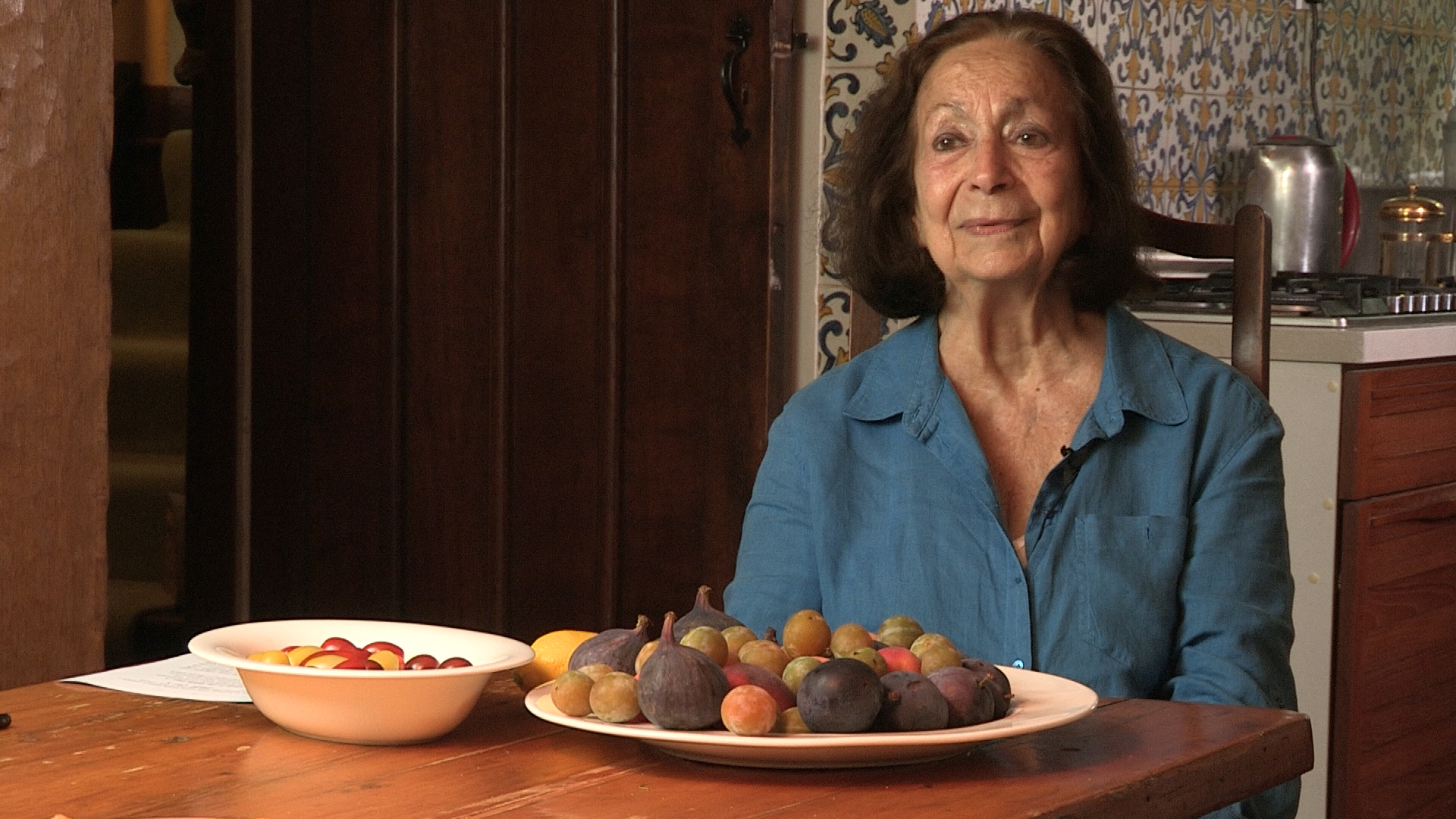NEXT STORY

Modern Italy and old props
RELATED STORIES

NEXT STORY

Modern Italy and old props
RELATED STORIES


|
Views | Duration | |
|---|---|---|---|
| 41. Magic making in Morocco | 02:00 | ||
| 42. Kitchen is a very intimate place | 02:55 | ||
| 43. 'Can you give me recipes?' | 00:50 | ||
| 44. BBC's Claudia Roden's Mediterranean Cookery | 03:40 | ||
| 45. A Taste of Italy | 1 | 02:17 | |
| 46. In search of cucina tipica in Italy | 02:20 | ||
| 47. Looking for the regional Italian food | 03:46 | ||
| 48. Dinner at the Gritti Palace in Venice | 01:41 | ||
| 49. Meeting people passionate about food | 1 | 03:36 | |
| 50. Work with a photographer | 05:01 |


Before I set off, the idea was that I had to work with a photographer. And the photographer was one of the most famous food photographers internationally. Robert Fresson. And he had done a book on the food of France. That was absolutely magnificent. So, he came around to this house and he said, 'I want to travel with you'. And I said, 'No'. Because I knew that photographers took a long, long time setting up. And what he needed was a place where we could spend the day doing several photographs. And I had to go looking for a cheese person, a salami maker, and I had to find people who talked. Because what I needed was words to put in the stories. I needed to know about the past, about the history. About the story of the villagers, what everything that anybody could tell me. But I had to talk to people, and I had to find people to talk to. And then I'd had the... you don't stay the whole day. You have your interview... I didn't call them interviews. But I had my pencil and paper. And I wrote. And I couldn't do it with a photographer.
And so, he said, 'Well, you go ahead, and you find the place where I can photograph. And also, can you find me old things, like old plates, and old... because I don't want modern stuff'. Because Italy at that time... it was after the war, they all wanted modern stuff. They wanted stainless steel in the kitchen. They wanted old baskets for making cheese. But actually, for hygiene laws, they couldn't have marble, they had to have stainless steel. They had to have plastic baskets to make cheese. And he said, 'And I want to photograph where there are no cars'. And he said, 'A bicycle okay'. But then he said, 'If you know if there's an old lady who goes there'. You know, he wanted in the end... his image he was looking for was an image of Italy long past. So, I went to antique shops to say, yes, they've got plates here. In Tuscany they had all these antique shops and they had antique markets and so on.
But then when I found them, many of the things in these antique shops came from England. Because I think in Victorian times, the English had more stuff than anybody else in the world. In the way of plates and knives and forks, and everything, and furniture as well. And so, sometimes we got plates that came from Yugoslavia. So yes, it had its funny sides. But people adored his photographs. Because it was a dream Italy that really did not exist anymore. And actually, we parted ways. We parted ways because publishers wanted to do my book. There was an auction there again, because as soon as the Sunday Times magazine came out, they would like to have had the words and the photographs. He wanted to buy my words, because he was much more famous than I was, the photographer. And a earned a lot more from doing the photographs than I did from doing the writing. And the recipes, I think. Anyway, that's what the editor told me. But the publishers wanted my words and the recipes. And so, we had parted ways. He was going to find somebody to write other recipes for him. Which was difficult for him, it took him several years and it didn't work. Because it was my recipes that the people that we saw and the photographs he took.
Claudia Roden (b. 1936) is an Egyptian-born British cookbook writer and cultural anthropologist of Sephardi/Mizrahi descent. She is best known as the author of Middle Eastern cookbooks including A Book of Middle Eastern Food, The New Book of Middle Eastern Food and The Book of Jewish Food.
Title: Work with a photographer
Listeners: Nelly Wolman
Claudia Roden talking to her granddaughter Nelly Wolman about her life in food.
Tags: Italy, Robert Fresson
Duration: 5 minutes, 1 second
Date story recorded: September 2022
Date story went live: 04 December 2023